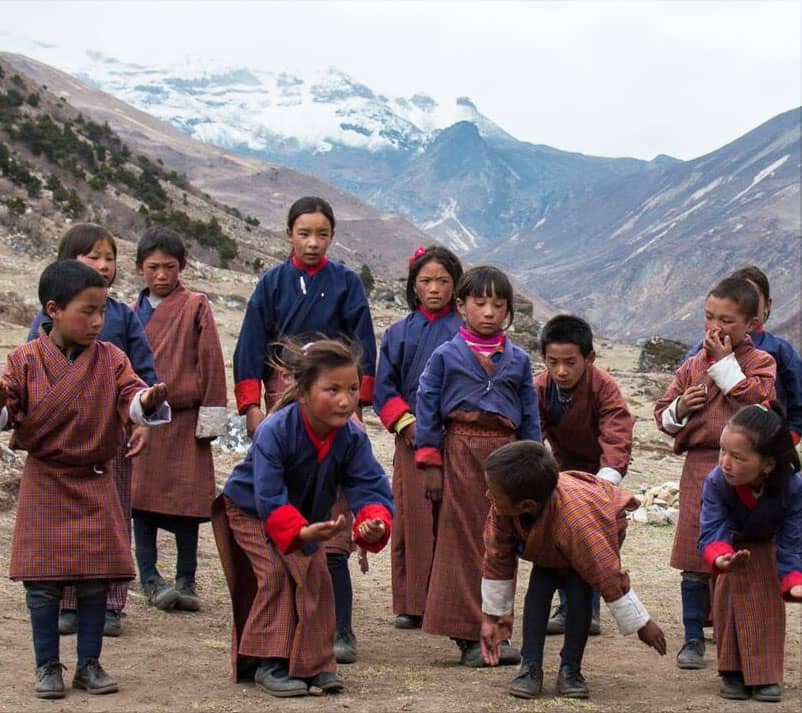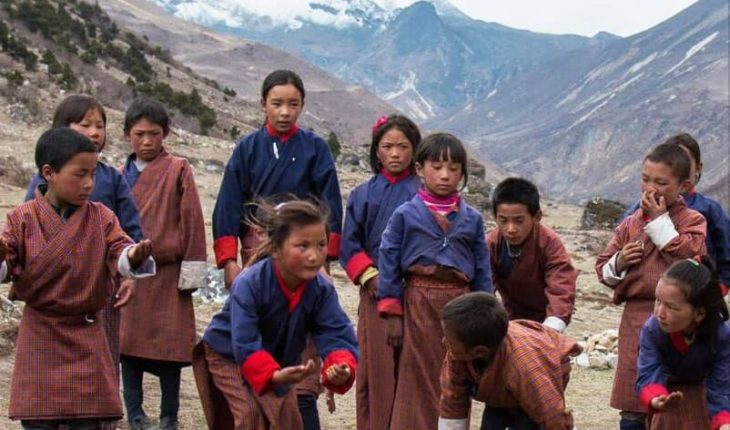
Minors still accept that they often get disciplined, physically, both at home and in classrooms
TENZIN LHAKI | Thimphu
A nationwide student survey conducted in 2024 has revealed significant shifts in how Bhutanese students spend their time outside school, interact with their families, and manage wellbeing compared to results from 2021.
The findings, which cover daily routines, chores, screen time, family relationships, and health, show both positive developments and concerning declines.
According to the report, grade III students in 2024 reported spending less time on both self-study and outdoor games compared to their counterparts in 2021.
The percentage of students saying they never engaged in these activities increased, while fewer students spent more than an hour on them daily.
In contrast, grade VI students in 2024 indicated a sharp increase in self-study, reporting higher engagement than grade III students in 2021.
Their responses on outdoor games displayed a polarizing trend: more students said they never played outdoors, but at the same time, more reported spending over an hour daily on such games.
“I used to play outside with my friends every evening, but now I spend more time on homework and sometimes extra tuition,” said Sonam, a grade VI student from Paro.
Another student, Kinley from Thimphu, admitted, “We don’t play as much outside because many of us are busy with gadgets. I still play football for more than an hour every day, but some of my friends don’t join anymore.”
When asked about reading and writing, grade VI students in 2024 reported spending more time writing than reading, with 57% saying they write for about an hour or more daily compared to only 31% for reading.
The study also highlighted a noticeable reduction in students’ participation in household chores compared to 2021. Grade III students in 2024 were less likely to report helping with tasks such as cooking food, sweeping the floor, washing clothes, or washing plates.
Both grade III and VI students reported spending less time collecting firewood, gardening, or looking after younger siblings.
Nonetheless, cooking, sweeping, and washing plates remained the most commonly performed chores, while looking after pets, livestock, or collecting firewood were least reported.
“I help my mother sometimes with cooking, but not every day. She says I should focus on studies,” explained Tashi, a grade III student from Wangdue.
Meanwhile, Pema, a grade VI student from Trashigang, noted, “We still have to sweep and wash plates daily but we don’t go to the forest for firewood anymore because my family uses gas and electricity.”
The responses indicate a broader shift in household responsibilities, with grade VI students less likely to say they “always” cook food but also less likely to say they “never” do it, suggesting more balanced participation.
Students’ daily screen time revealed new patterns. Although the format of questions differed between 2021 and 2024, the data shows mobile and computer games, along with electronic gadget use, dominating student leisure.
Among grade III students, 19% reported playing mobile or computer games for at least two hours daily, followed by 18% using gadgets, 13% watching television, 11% using social media, and 6% using a computer.
Grade VI students ranked gadget use highest at 27%, with 23% gaming, 17% on social media, 11% watching TV, and only 2% using computers extensively.
More than 40% of grade VI students reported using social media for at least an hour daily.
“Most of my free time is on my phone. I use it for games and social media,” admitted Dorji, a grade VI student. In contrast, Dechen, a grade III student, said, “I like watching cartoons on TV, but my parents don’t allow me to play games for long.”
The report further examined family engagement. In 2024, grade III students reported reduced time eating meals or talking with family compared to their 2021 counterparts.
In contrast, grade VI students reported increases in most types of family interactions, including eating meals together, spending time talking, and visiting temples.
For example, 58% of grade VI students said they attended local festivals with their families at least a few times a month, compared to 50% of grade III students.
“Dinner time is when I talk most with my parents about school and my friends,” said Tshering, a grade VI student from Mongar. However, a grade III student, Choden, shared, “Sometimes I eat alone if my parents are busy. We don’t always sit together.”
Despite changes in family routines, the majority of students in 2024 continued to receive strong educational support from their families.
More than 80% of students reported that their families asked about school, attended parent-teacher meetings, encouraged them to get good marks, and knew their teachers.
However, fewer students in 2024 reported that their families helped with homework or project work compared to 2021. Grade VI students in particular, were less likely to receive help with projects.
“My father always asks me about my studies and attends meetings, but he doesn’t help with homework. I do it on my own,” said Yeshi, a grade VI student.
Meanwhile, Sonam a grade III student noted, “My mother helps me with reading every night. She also reads books to me.”
Interestingly, grade III students in 2024 were more likely than those in 2021 to say their families read books to them, though they were less likely to hear stories told at home.
Nearly all students who lived with parents in 2024—at least 97%—said they were happy with them. The percentages were slightly lower for students living with guardians but still above 80%.
However, reports of physical discipline remained notable. Nearly half of grade III students said their parents beat them, while about a third of those living with guardians reported the same.
The figures were lower among grade VI students: 34% said their parents beat them, and 19% reported beatings from guardians.
“I am happy with my parents. They scold me sometimes, but they don’t beat me much anymore,” shared Peldon, a grade VI student. By contrast, a grade III student, Karma, said, “When I don’t finish homework, my father sometimes beats me.”
Student health was another area of focus. A large percentage of students—85% in grade III and 89% in grade VI—reported being sick at least sometimes in the past year.
Around three-quarters said they missed classes due to illness, with slightly fewer seeking or receiving help from school.
Hospital admissions were relatively rare, with 43% of grade III students and 28% of grade VI students reporting being hospitalized in the past year.
“When I got sick, my teacher told me to rest at home. I missed three days of class,” recalled Karma, a grade III student. Sangay, a grade VI student, added, “I had to go to the hospital once, but most of the time I just take medicine at home.”
The survey also asked students about their values and reasons for learning. Results showed strong agreement across grades, with the vast majority affirming that learning is important, enjoyable, and connected to future goals.
However, fewer grade III students in 2024 than in 2021 said they liked learning because it would help them get a job when they grow up. Still, 96% agreed with the statement, reflecting continued high motivation overall.
“Learning is important for me because I want to become a doctor,” said Rinzin, a grade III student. Another, Lhamo, explained, “I study hard because my parents tell me education will give me a good future.”




